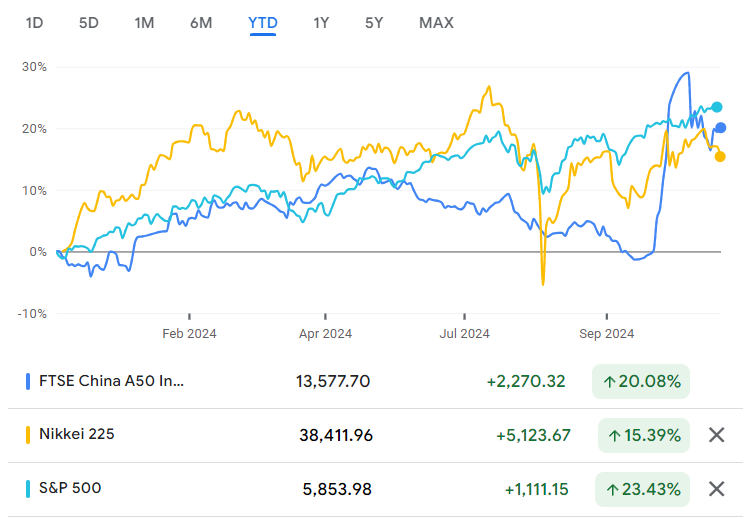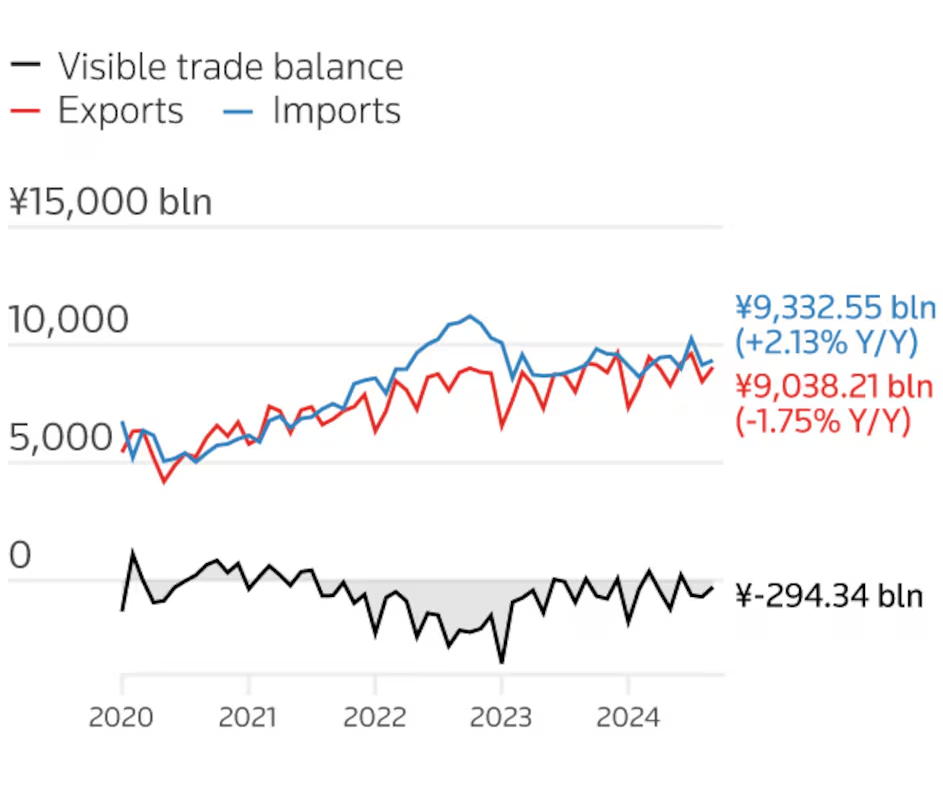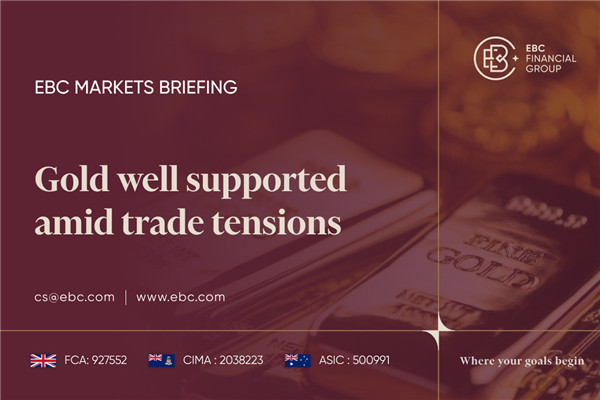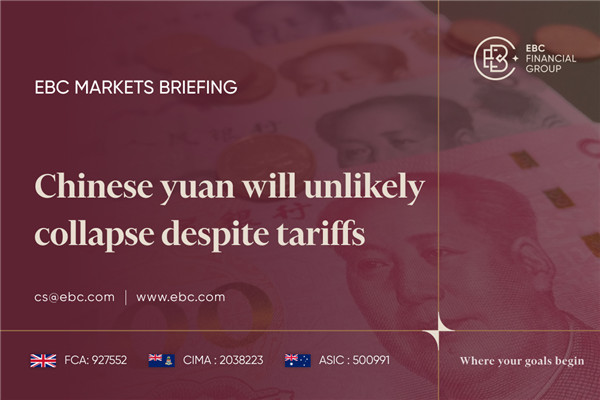Global investor optimism posted its biggest jump since June 2020 in October
due to Fed rate cuts, stimulus pledges from China and expectations of a soft
landing for the US economy, a BofA survey showed.
Cash allocations dropped to 3.9% in September, while equity allocations rose
to a net 31% overweight, and bond allocations suffered a record drop to a net
15% underweight, according to the survey.
Emerging markets cheered up. A surge in Chinese stocks last month helped Asia
hedge funds pull ahead of global peers for the first three quarters, after three
years of trailing performance.
September gains of almost 5% pushed Asia fund returns to 9.7% in 2024,
according to Eurekahedge Pte indexes. Even so the fortune for the rest of the
year is far from assured.
The Nikkei 225 has closed under 40,000 since a steep pullback from its record
peak hit in July. BOJ's tightening that rattled the market in August will
unlikely be brought to an end anytime soon.
The A50's blistering rally hit a rough patch right after the National Day
holiday. It is yet to show clear direction even after Chinese government
announced more stimulus measures.

The indexes are both outrun by the S&P 500 in the year that has increased
23.4%. FOMO and TINA render US stock market invincible despite a valuation
higher than the historical average and those of its peers.
Demand for Japan shares
Japan's exports fell for the first time in 10 months in September, data
showed, a worry for policymakers as any prolonged weakness in external demand
will delay plans for a further interest rate hike.

Nevertheless, a quarterly central bank survey suggested the pains have yet to
be fully felt by manufacturers, with the business mood holding up and companies
retaining robust spending plans.
The Nikkei 225 will set a fresh record unless the ruling coalition loses its
majority in the Lower House election, said Kenichi Kuga, head of the global
equity and fixed income investment department at Japan Post Insurance Co.
Once political noise is out of the way, overseas investors will be more
likely to buy Japanese stocks again, he said, adding their buying momentum is
still less than 2012 when Abenomics was introduced.
"Their (Japanese firms) sensitivity to exchange rates is also decreasing. So
even if the yen appreciates, the negative impact on their business performance
will be minimal."
The trading debut of Tokyo Metro Co. is set to support the bull case for the
Japanese stock market after an oversubscribed public offering. It is Japan's biggest listing in six years.
Foreign investors in particular sought more than 35 times the amount of
shares on offer to them, an anonymous underwriters said. That signals the risk
appetite has spread beyond rate-sensitive and tech sector.
Wary of China rally
In just a month, the proportion of Asia fund managers building exposure in
China jumped from 8% to 31%, according to a BofA survey published in October,
reflecting drastic shift in the sentiment.
Billions of cash that had been diverted to India and Japan rushing back to
bring China exposures from near record lows towards neutral or market-weight,
but few investors are willing to go large.
Funds that poured into US-listed ETF that invest in China has mostly stayed
there, after the initial rush. The prospect of Trump victory weeks away added to
uncertainties around the export-driven economy.
"The market is looking for a number on the size of fiscal stimulus to get
excited. If we get that, then there is more room for another rise in stocks,"
said Willem Sels, global CIO at HSBC Global Private Banking and Wealth.
China policymakers are going to be less restrictive and some of the gap in
valuation between tech stocks in equivalent countries could close, according to
Nate Thooft, CIO for multi-asset at Manulife Investment Management.
There are more direct levers China can pull to agitate for companies to
improve performance. High levels of state ownership ought to reduce the need for
the sorts of detailed governance codes adopted in Japan.
Chinese firms generated all-time high free cash flows last year, helped by
falling capital expenditure, with cash balances of 18 trillion yuan or 23% of
the total value of the market, Goldman Sachs research shows.
Disclaimer: This material is for general information purposes only and is not
intended as (and should not be considered to be) financial, investment or other
advice on which reliance should be placed. No opinion given in the material
constitutes a recommendation by EBC or the author that any particular
investment, security, transaction or investment strategy is suitable for any
specific person.








